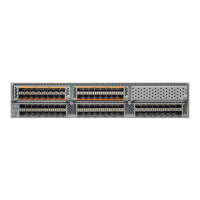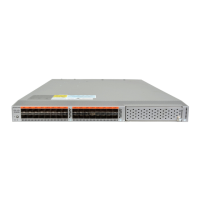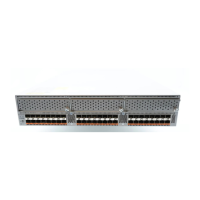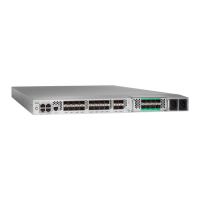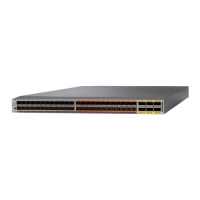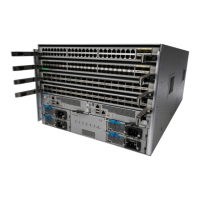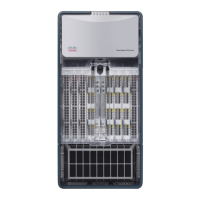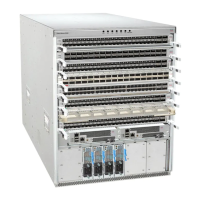54
Cisco Nexus 5500 Series NX-OS Security Command Reference
OL-27883-02
Chapter D Commands
deny tcp (IPv4)
deny tcp (IPv4)
To create an access control list (ACL) rule that denies TCP IPv4 traffic matching its conditions, use the
deny command. To remove a rule, use the no form of this command.
General Syntax
[sequence-number] deny tcp source [operator port [port] | portgroup portgroup] destination
[operator port [port] | portgroup portgroup] [dscp dscp | established | flags | fragments | log |
precedence precedence]
no deny tcp source [operator port [port] | portgroup portgroup] destination [operator port [port]
| portgroup portgroup] [dscp dscp | established | flags | fragments | log | precedence
precedence]
no sequence-number
Syntax Description sequence-number (Optional) Sequence number of the deny command, which causes the switch
to insert the command in that numbered position in the access list. Sequence
numbers maintain the order of rules within an ACL.
A sequence number can be any integer between 1 and 4294967295.
By default, the first rule in an ACL has a sequence number of 10.
If you do not specify a sequence number, the switch adds the rule to the end
of the ACL and assigns to it a sequence number that is 10 greater than the
sequence number of the preceding rule.
Use the resequence command to reassign sequence numbers to rules.
source Source IPv4 addresses that the rule matches. For details about the methods
that you can use to specify this argument, see the “Source and
Destination”section in the “Usage Guidelines” section.
destination Destination IPv4 addresses that the rule matches. For details about the
methods that you can use to specify this argument, see the “Source and
Destination”section in the “Usage Guidelines” section.
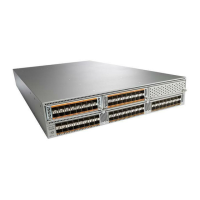
